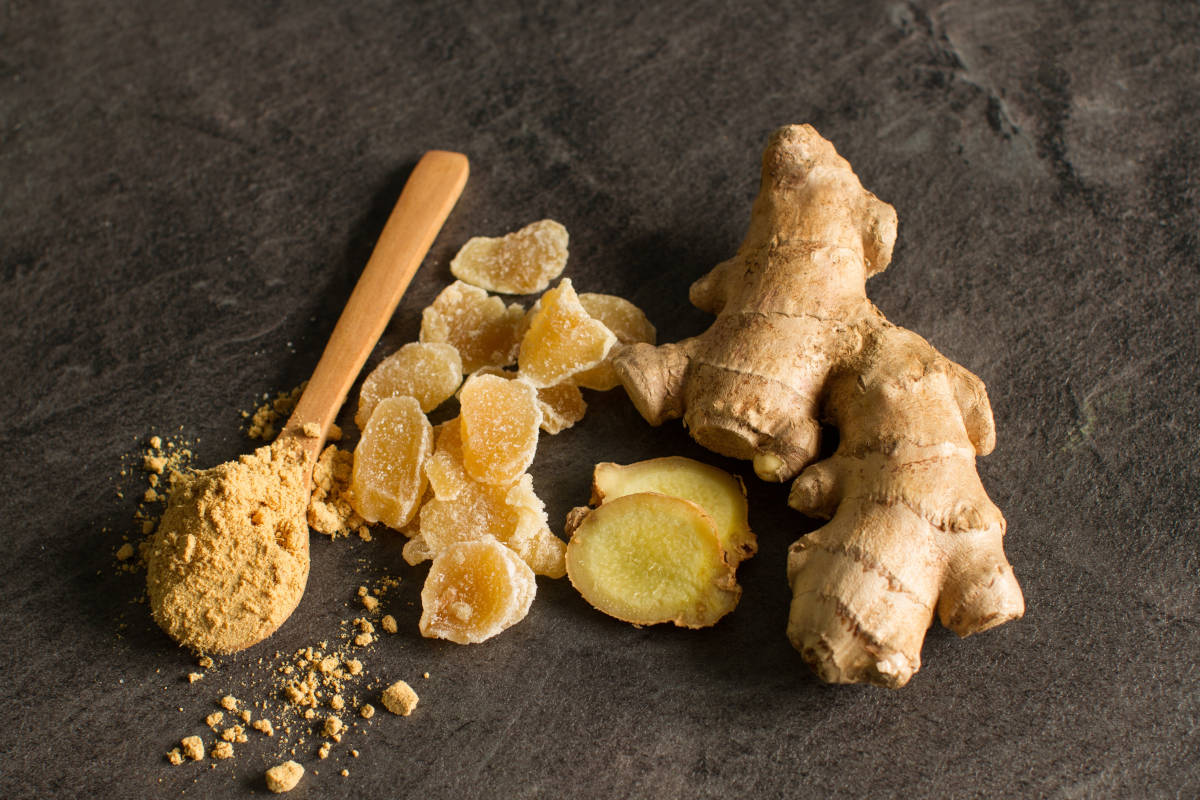I. Health Benefits of Ginger
History and origin of ginger
Ginger is known for its unique flavor and aroma, but did you know that it also offers a wide range of health benefits? This root has been used for centuries in traditional medicine and culinary practices. Let’s explore the history and origin of ginger to better understand its significance.
Ginger, scientifically known as Zingiber officinale, is native to Southeast Asia and has been cultivated for over 3,000 years. It was first discovered in the rainforests of India and later spread to other parts of Asia, Africa, and the Caribbean. The ancient Greeks and Romans prized ginger for its medicinal properties, using it to treat digestive issues and enhance appetite.
Culinary uses of ginger
Ginger is a versatile ingredient that adds a unique flavor to both sweet and savory dishes. Some popular culinary uses of ginger include:
1. Ginger Tea: Ginger tea is a soothing beverage made by steeping fresh ginger slices in hot water. It is often enjoyed for its warming and comforting properties, especially during cold winter months.
2. Stir-Fries and Curry: Ginger adds a zesty and aromatic kick to stir-fries and curry dishes. It pairs well with ingredients like garlic, soy sauce, and chili peppers, enhancing the overall flavor profile.
3. Baked Goods: Ginger is a common ingredient in baked goods, such as gingerbread cookies and cakes. It imparts a spicy and slightly sweet taste that complements the richness of butter and sugar.
4. Marinades and Dressings: Ginger can be used in marinades and dressings to add depth and complexity to dishes. Its natural acidity helps tenderize meat and brings balance to dressings.
5. Smoothies and Juices: Fresh ginger can be grated or blended into smoothies and juices to add a refreshing and zingy element. It pairs well with citrus fruits and leafy greens.
These are just a few examples of how ginger can be incorporated into your meals and beverages. Its versatility and distinct flavor make it a popular ingredient in various cuisines around the world.
Ginger not only adds a delicious touch to your dishes but also provides numerous health benefits. Stay tuned to learn more about the secret health benefits of ginger!

II. Nutritional Profile of Ginger
Macronutrient and micronutrient content of ginger
Ginger is not only a flavorful and aromatic spice but also a nutritional powerhouse. It contains a variety of macronutrients and micronutrients that contribute to its health benefits. Here are some key components of ginger’s nutritional profile:
1. Carbohydrates: Ginger is a low-calorie food that primarily consists of carbohydrates. It provides energy and helps maintain blood sugar levels.
2. Fiber: Ginger is a good source of dietary fiber. Fiber aids in digestion, promotes a feeling of fullness, and supports bowel regularity.
3. Vitamins: Ginger contains vitamins such as vitamin C, vitamin B6, and vitamin E. These vitamins play a crucial role in supporting immune function, brain health, and skin health.
4. Minerals: Ginger is rich in minerals like potassium, magnesium, and manganese. These minerals are necessary for various bodily functions, including muscle function and bone health.
5. Antioxidants: Ginger is packed with antioxidants, including gingerol, shogaol, and zingerone. These compounds help protect the body from oxidative stress and may have anti-inflammatory effects.
Health benefits of ginger’s nutritional components
The nutritional components of ginger contribute to its numerous health benefits. Here are some of the ways ginger can support your well-being:
1. Digestive health: The fiber content in ginger aids in digestion and can help alleviate digestive issues such as indigestion, bloating, and stomach discomfort.
2. Immune system support: The vitamins and antioxidants present in ginger can help boost the immune system, protecting against illness and supporting overall health.
3. Reducing inflammation: The antioxidants in ginger have anti-inflammatory properties that can help reduce inflammation in the body, potentially benefiting conditions such as arthritis and inflammatory bowel disease.
4. Nausea relief: Ginger has long been used as a natural remedy for nausea, including morning sickness during pregnancy and nausea associated with chemotherapy.
5. Pain management: Ginger’s anti-inflammatory properties may also help alleviate pain, especially in conditions such as osteoarthritis and muscle soreness.
Ginger is a versatile spice that can be used in various dishes, beverages, and even as a natural remedy. Incorporating ginger into your diet can offer you these health benefits and add a delicious kick to your meals.
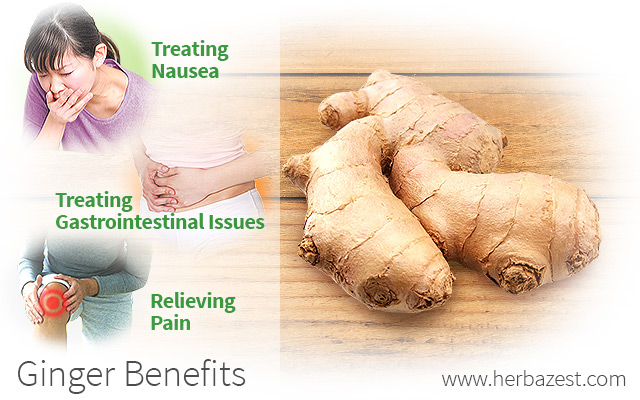
III. Digestive Health Benefits of Ginger
Ginger’s role in relieving gastrointestinal issues
Ginger has long been used as a natural remedy for various gastrointestinal issues. Here are some of the digestive health benefits of ginger:
1. Relieves Nausea: Ginger is well-known for its ability to reduce nausea and vomiting. It is particularly effective in treating nausea caused by motion sickness, morning sickness during pregnancy, and chemotherapy-induced nausea.
2. Eases Indigestion: Ginger can help relieve indigestion by speeding up the emptying of the stomach, reducing bloating, and alleviating discomfort. It stimulates the production of digestive juices, which aids in the breakdown of food.
3. Reduces Flatulence: Ginger has carminative properties, which means it helps reduce gas and bloating. It can also help soothe the intestinal muscles and promote the expulsion of gas from the digestive system.
4. Prevents Stomach Ulcers: Ginger has been found to inhibit the growth of Helicobacter pylori, a bacterium that can cause stomach ulcers. By reducing the growth of this harmful bacterium, ginger may help prevent the development of ulcers.
Effects of ginger on digestion and nutrient absorption
Ginger can benefit digestion and nutrient absorption in several ways:
1. Increases Saliva Production: Chewing on ginger or drinking ginger tea can stimulate saliva production, which aids in the initial digestion of food and the breakdown of starches.
2. Stimulates Digestive Enzymes: Ginger contains compounds that help stimulate the production of digestive enzymes, such as amylase, lipase, and protease. These enzymes are essential for breaking down carbohydrates, fats, and proteins.
3. Enhances Nutrient Absorption: The active compounds in ginger can improve nutrient absorption by enhancing the function of the stomach, intestines, and pancreas. This can lead to better overall nutrient utilization by the body.
4. Anti-Inflammatory Effects: Ginger has anti-inflammatory properties that can help alleviate digestive inflammation, such as in cases of inflammatory bowel disease (IBD). By reducing inflammation, ginger may help improve digestion and reduce associated symptoms.
Overall, ginger has numerous digestive health benefits, making it a valuable addition to any diet. Incorporating ginger into your daily routine, whether in cooking, as a tea, or in supplement form, can help support a healthy digestive system.
Keep in mind, however, that ginger may not be suitable for everyone, particularly those with certain medical conditions or who are taking certain medications. It’s always best to consult with a healthcare professional before incorporating ginger into your diet or using it for medicinal purposes.

IV. Anti-Inflammatory Properties of Ginger
The chemical compounds in ginger with anti-inflammatory effects
Ginger is not only a flavorful spice but also holds several health benefits, including its anti-inflammatory properties. The key compounds in ginger responsible for its anti-inflammatory effects are gingerols and shogaols. These compounds have been found to inhibit the production of pro-inflammatory cytokines, reducing inflammation in the body. Ginger also contains zingerone, another compound with anti-inflammatory properties.
Ginger’s potential role in reducing inflammation-related diseases
The anti-inflammatory properties of ginger make it a promising natural remedy for various inflammation-related diseases. Some studies have shown that ginger can help alleviate symptoms of osteoarthritis, a degenerative joint disease characterized by inflammation and pain. Ginger may also offer relief from other inflammatory conditions such as rheumatoid arthritis, inflammatory bowel disease, and even certain types of cancer.
Research suggests that ginger’s anti-inflammatory effects may also play a role in reducing the risk of heart disease by lowering levels of inflammatory markers in the blood. Furthermore, ginger has shown potential in reducing muscle soreness and inflammation caused by intense exercise.
It is important to note that while ginger can provide relief from inflammation, it should not replace medical treatment. It is best to consult with a healthcare professional for guidance on incorporating ginger into your diet or as a supplement.
To learn more about the health benefits of ginger, you can visit this Wikipedia page.
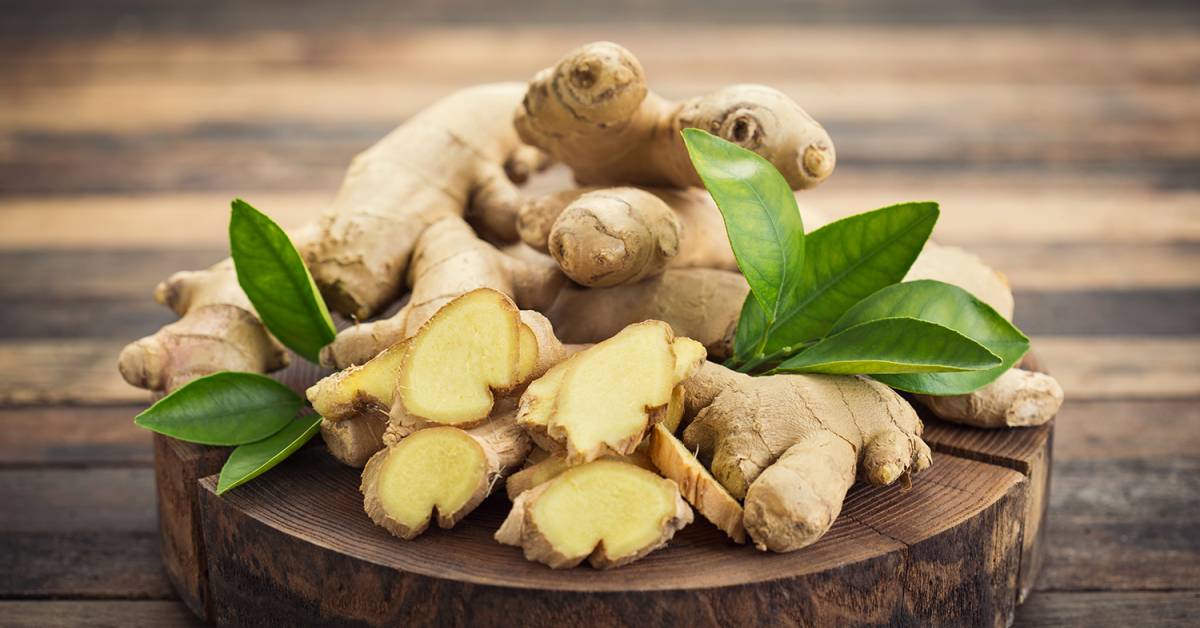
V. Immune-Boosting Effects of Ginger
Ginger, a popular spice known for its unique flavor and aroma, also offers several health benefits. One of the key benefits of ginger is its immune-boosting effects.
Ginger’s impact on the immune system
Ginger contains various compounds, such as gingerols and shogaols, that possess powerful anti-inflammatory and antioxidant properties. These compounds have been found to enhance the immune system by reducing inflammation and oxidative stress in the body. They can also stimulate certain immune cells, such as macrophages and T-cells, which play important roles in fighting off infections and diseases.
Studies have shown that ginger can help improve the immune response and increase the production of immune cells, thus making the body more resilient to infections. It can also help regulate the immune system, preventing it from becoming overactive or underactive.
Ginger as a natural remedy for colds and flu
One of the most well-known uses of ginger is its ability to ease symptoms of colds and flu. It acts as a natural decongestant and expectorant, helping to clear the respiratory passages and relieve congestion. Ginger also has antibacterial and antiviral properties that can inhibit the growth of viruses and bacteria responsible for respiratory infections.
Many people find relief from sore throats and coughs by consuming ginger tea or ginger-infused honey. The warming and soothing properties of ginger can help alleviate these symptoms and promote faster recovery.
Overall, ginger is a natural ingredient that can provide immune-boosting effects and help combat colds and flu. Incorporating ginger into your diet or consuming it in the form of teas, juices, or supplements can be a beneficial addition to your wellness routine.
For more information on the health benefits of ginger, you can refer to this Wikipedia article.
:max_bytes(150000):strip_icc()/gigner-peeling-hack-396e818a5c774258a7688a679f4436e3.jpg)
VI. Pain Relief with Ginger
Ginger’s potential analgesic properties
Ginger, a popular spice, has been used for centuries in traditional medicine for its potential health benefits. Recent studies have shown that ginger may also have analgesic properties, making it a potential natural remedy for pain relief.
Researchers believe that ginger may work by inhibiting the production of inflammatory substances in the body, reducing pain and inflammation. One study found that ginger extract was effective in relieving pain in individuals with osteoarthritis, a common chronic condition characterized by joint pain and stiffness.
Ginger’s use in managing chronic pain conditions
In addition to its potential analgesic properties, ginger has also shown promise in managing chronic pain conditions such as migraine headaches and menstrual cramps. Some studies suggest that ginger may help reduce the severity and duration of migraines when taken as a preventive measure.
For individuals experiencing menstrual cramps, ginger has been shown to be effective in reducing pain and discomfort. Its natural anti-inflammatory properties may help relax the muscles and alleviate cramping.
While more research is needed to fully understand the pain-relieving benefits of ginger, its potential as a natural remedy is promising. It may be worth considering ginger as a complementary approach to pain management alongside traditional treatments.
To learn more about the health benefits of ginger, you can visit Wikipedia.
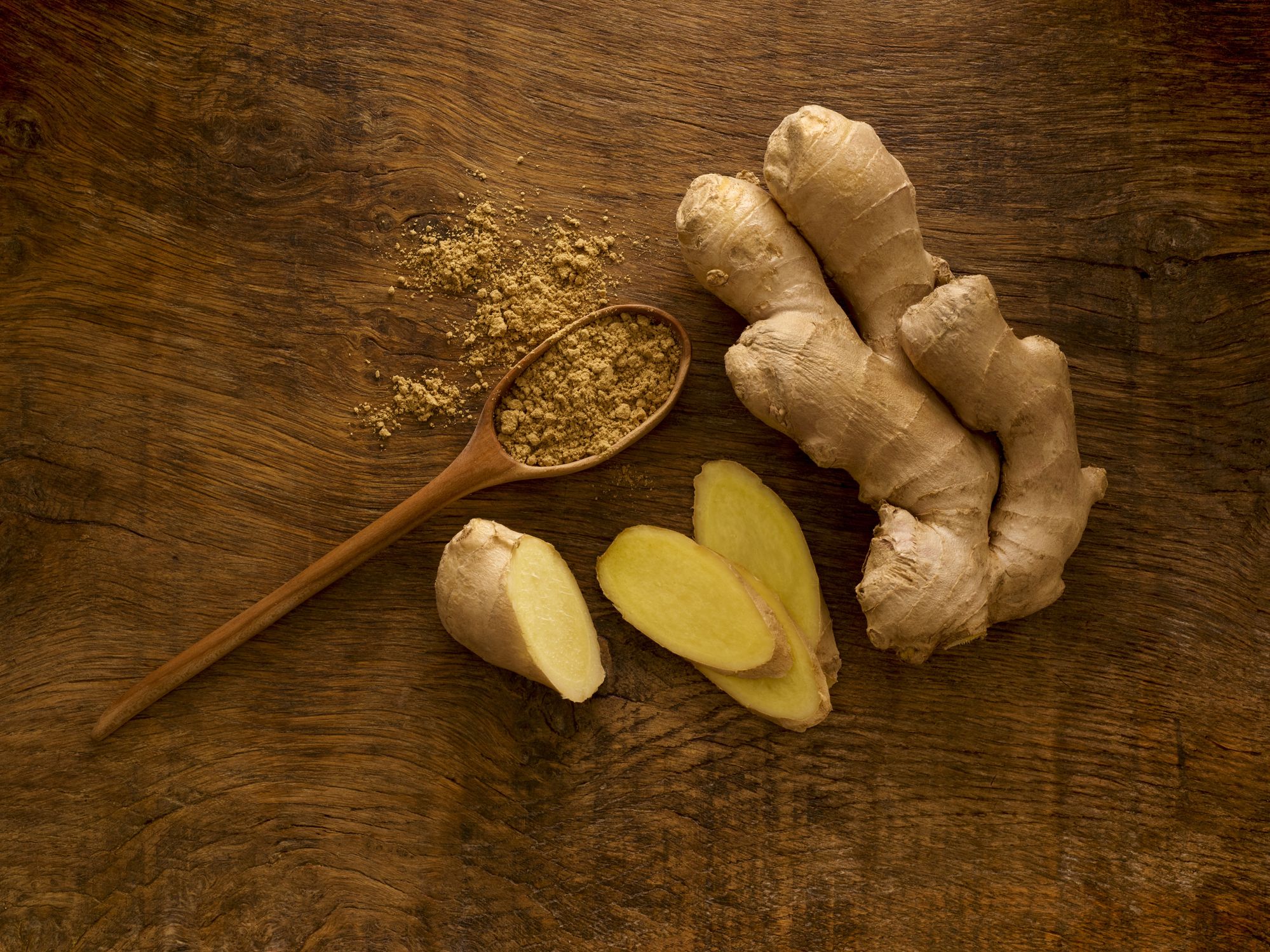
VII. Anti-Cancer Potential of Ginger
Ginger’s bioactive compounds and their anti-cancer effects
Ginger, a popular culinary spice, has long been valued for its unique flavor and aroma. But did you know that ginger also possesses remarkable health benefits, including potential anti-cancer properties?
Ginger contains bioactive compounds such as gingerols, shogaols, and paradols, which have been studied extensively for their potential anti-cancer effects. These compounds have been found to exhibit antioxidant, anti-inflammatory, and anti-tumor activities, making ginger a promising natural remedy in cancer prevention and treatment.
Studies on ginger’s role in cancer prevention and treatment
Numerous studies have been conducted to evaluate ginger’s role in the prevention and treatment of various types of cancer. Here are some key findings:
- Colon Cancer: Research suggests that ginger extract may inhibit the growth and spread of colon cancer cells by inducing cell death and preventing the formation of new blood vessels in tumors.
- Breast Cancer: Studies have shown that ginger extract and its bioactive compounds can suppress the growth and migration of breast cancer cells, reduce inflammation, and induce apoptosis (programmed cell death).
- Ovarian Cancer: Ginger extract has been found to inhibit the proliferation of ovarian cancer cells, reduce tumor volume, and enhance the effectiveness of chemotherapy drugs.
- Liver Cancer: Ginger-derived compounds have demonstrated anti-cancer effects against liver cancer cells by inhibiting cell growth and inducing cell cycle arrest.
While these studies show promising results, it’s important to note that ginger should not be used as a substitute for conventional cancer treatments. Further research is still needed to determine the optimal dosage, frequency, and long-term effects of ginger supplementation in cancer prevention and treatment.
To learn more about ginger’s potential anti-cancer properties, refer to this Wikipedia link.
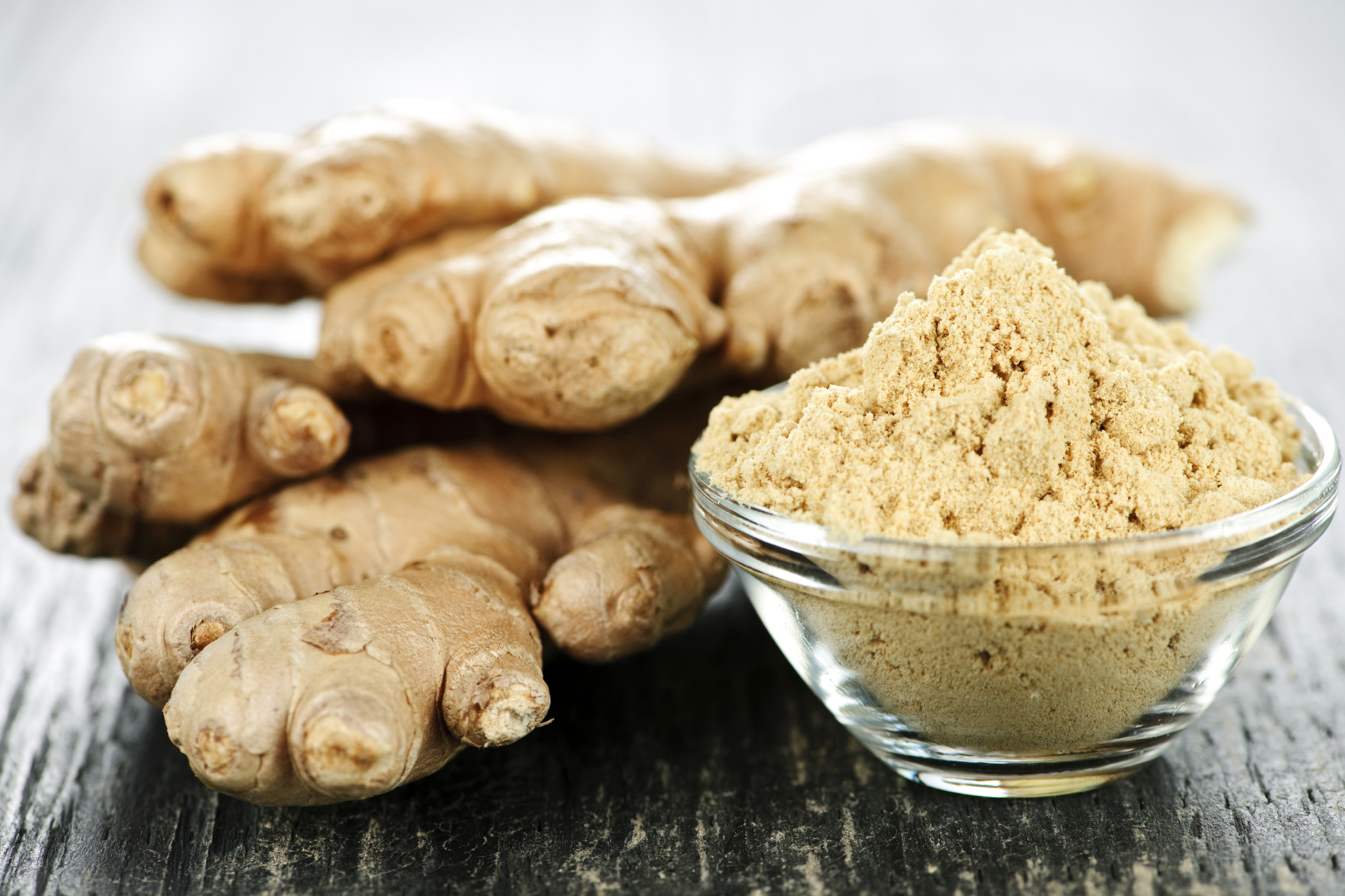
VIII. Heart Health Benefits of Ginger
Ginger’s impact on cardiovascular health
Ginger is not only a flavorful spice but also offers several health benefits, including a positive impact on cardiovascular health. Ginger has been found to have the following effects on the heart:
1. Anti-inflammatory properties: Ginger contains compounds called gingerols, which have anti-inflammatory effects. Chronic inflammation is linked to various cardiovascular diseases, and reducing inflammation can help promote heart health.
2. Blood pressure regulation: Studies have shown that ginger can help regulate blood pressure by reducing high blood pressure levels. Maintaining healthy blood pressure is crucial for overall heart health.
3. Cholesterol management: High levels of LDL cholesterol can increase the risk of heart disease. Ginger has been found to effectively lower LDL cholesterol levels, thus reducing the risk of heart-related issues.
Ginger’s role in reducing heart disease risk factors
In addition to its impact on cardiovascular health, ginger can help reduce several risk factors associated with heart disease:
1. Improved blood circulation: Ginger has the ability to improve blood circulation by preventing the formation of blood clots and reducing the risk of thrombosis. Proper blood circulation is essential for a healthy heart.
2. Antioxidant protection: Ginger is rich in antioxidants, which help protect the heart from oxidative stress and damage caused by free radicals. These antioxidants can help prevent the development of heart disease.
3. Lowered triglyceride levels: High triglyceride levels are linked to an increased risk of heart disease. Ginger has been shown to effectively lower triglyceride levels, thus reducing the risk of heart-related issues.
Incorporating ginger into your diet or consuming ginger supplements can be a natural and effective way to support heart health and reduce the risk of cardiovascular diseases. To learn more about the health benefits of ginger, you can visit this link.
IX. Ways to Incorporate Ginger into Your Diet
Delicious recipes and cooking ideas using ginger
Ginger is a versatile ingredient that can be used in various recipes to add a unique flavor and reap its health benefits. Here are some delicious ways to incorporate ginger into your diet:
1. Ginger Tea: Start your day with a soothing cup of ginger tea. Simply steep fresh ginger slices in hot water for a few minutes and add honey or lemon for extra flavor.
2. Ginger Stir-Fry: Add grated ginger to your stir-fried vegetables or meat for a zesty and aromatic twist. Ginger pairs well with soy sauce, garlic, and sesame oil.
3. Ginger Smoothies: Blend fresh or powdered ginger with your favorite fruits, yogurt, and a dash of honey for a refreshing and nutritious smoothie.
4. Ginger-Lemon Dressing: Make a tangy salad dressing by combining grated ginger, lemon juice, olive oil, and a touch of honey. Drizzle it over your favorite greens for a healthy and flavorful salad.
5. Ginger-Spiced Baked Goods: Add ground ginger to your muffins, cookies, or cakes for a warm and aromatic flavor. It pairs well with cinnamon, nutmeg, and cloves.
Other methods of consuming ginger for its health benefits
In addition to using ginger in recipes, there are other ways you can consume ginger to enjoy its health benefits:
• Ginger Supplements: If you’re not a fan of the taste of ginger or find it difficult to incorporate it into your diet, you can opt for ginger supplements available in the form of capsules or tablets. Make sure to consult a healthcare professional before adding any supplements to your routine.
• Ginger Infused Water: Slice fresh ginger and infuse it in water overnight. Sip on this infused water throughout the day for a subtle ginger flavor and health benefits.
• Ginger Shots: Some health stores offer ginger shots, which are concentrated doses of ginger juice. These shots provide a quick and potent way to consume ginger and its nutrients.
• Pickled Ginger: Enjoy pickled ginger as a palate cleanser or as a condiment alongside sushi. Pickled ginger has a refreshing and tangy flavor that pairs well with various dishes.
Incorporating ginger into your diet is a delicious and healthy way to enjoy its numerous health benefits. Get creative with your recipes and explore different ways to include ginger in your meals.
X. Precautions and Considerations
Potential side effects and interactions with medications
While ginger is generally considered safe for most people when consumed in moderate amounts, there are a few precautions and considerations to keep in mind:
1. Allergies: Some individuals may be allergic to ginger. If you experience any allergic reactions, such as rash, itching, or difficulty breathing, it is important to discontinue use and seek medical attention.
2. Gastrointestinal issues: Ginger may cause mild gastrointestinal side effects in some people, including heartburn, stomach discomfort, or diarrhea. If you experience any of these symptoms, it is best to reduce your ginger intake or avoid it altogether.
3. Interactions with medications: Ginger may interact with certain medications, including anticoagulants (blood thinners), antiplatelet drugs, and diabetes medications. It is important to consult with your healthcare provider before adding ginger to your routine if you are taking any medications.
4. Surgery: Ginger may interfere with blood clotting, so it is recommended to stop consuming ginger at least two weeks before scheduled surgery to reduce the risk of excessive bleeding.
5. Pregnancy and breastfeeding: While ginger is generally considered safe during pregnancy and breastfeeding, it is still best to consult with your healthcare provider before using ginger as a supplement.
Remember, it is always important to listen to your body and pay attention to any potential adverse effects. If you have any concerns or questions about ginger’s safety for your specific health condition or medication regimen, it is best to consult with a healthcare professional.

XI. Conclusion
Final thoughts on incorporating ginger into a healthy lifestyle
Incorporating ginger into your daily routine can bring a range of health benefits and enhance your overall well-being. From its anti-inflammatory properties to its ability to aid digestion and reduce nausea, ginger is a powerful root with numerous health benefits. Here are some final thoughts on incorporating ginger into a healthy lifestyle:
1. Culinary Use: Ginger can be easily incorporated into your diet by adding it to various dishes and beverages. From stir-fries and sauces to teas and smoothies, ginger adds a unique flavor and a dose of health benefits.
2. Natural Remedy: With its anti-inflammatory properties, ginger can be used as a natural remedy for aches, pains, and inflammatory conditions. Whether consumed orally or applied topically, ginger can provide relief and support your body’s natural healing processes.
3. Digestive Aid: Ginger has long been used to treat various digestive issues such as bloating, indigestion, and flatulence. It can help stimulate the digestive system, improve nutrient absorption, and alleviate gastrointestinal discomfort.
4. Immune System Booster: Ginger’s immune-boosting properties can help strengthen your body’s defenses against infections and illnesses. It can also help reduce inflammation in the body, supporting a healthy immune system.
5. Nausea Relief: Ginger has been found to be effective in reducing nausea and vomiting, making it a valuable remedy for motion sickness, morning sickness during pregnancy, and chemotherapy-induced nausea.
Remember to consult with a healthcare professional before making any significant changes to your diet or health routine. While ginger is generally safe for most people, it may interact with certain medications or have contraindications for specific health conditions.
Incorporating ginger into your daily life can be a tasty and beneficial addition to a healthy lifestyle. So, why not start adding this versatile root to your meals and reap the many health benefits it provides!
